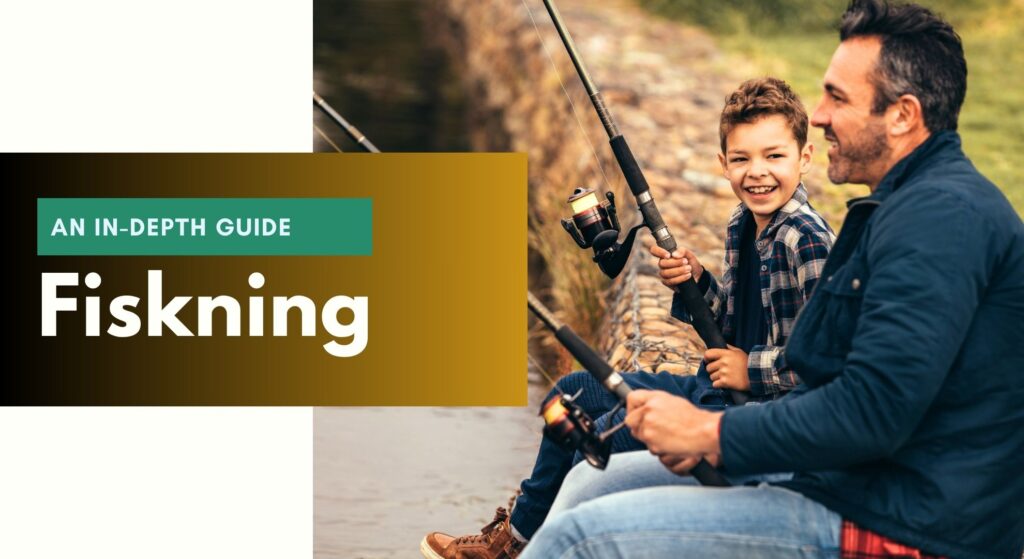Introduction
Fiskning is a practice that may be unfamiliar to many. Originating from Swedish, the term “fiskning” translates to “fishing” in English. Fishing is both a recreational and practical activity that has been part of human culture for thousands of years. In this article, we will explore what fiskning involves, its different types, the benefits it offers, and some tips for those interested in taking up this activity. Whether you’re a seasoned angler or a beginner, understanding fiskning can enhance your experience and appreciation of this age-old practice.
What is Fiskning?
Fiskning, or fishing, is the activity of catching fish for food, sport, or leisure. This practice can be carried out in various environments such as freshwater lakes, rivers, and saltwater oceans. It involves using different techniques and equipment to attract and catch fish.
Types of Fiskning
There are several methods of fishing, each with its own techniques and equipment.
- Recreational Fishing: This is done for fun and relaxation. Anglers use rods and reels to catch fish and often practice catch-and-release, returning the fish to the water.
- Commercial Fishing: This method is used to catch fish for sale. It involves larger boats and nets and is a major industry in many countries.
- Sport Fishing: Similar to recreational fishing but often involves competitions. Anglers aim to catch the largest or most challenging fish.
Equipment Used in Fiskning
The equipment used for fishing varies depending on the type of fishing being done. Common items include fishing rods, reels, lines, hooks, and bait.
- Fishing Rods and Reels: Rods provide the leverage needed to cast the line, while reels help to retrieve it.
- Lines and Hooks: Lines are used to connect the bait to the rod, and hooks are used to catch the fish.
- Bait: Bait can be live (like worms or minnows) or artificial (like lures designed to mimic fish prey).
Benefits of Fiskning
Fishing offers a range of benefits, both physical and mental. Engaging in fiskning can improve your well-being and provide a rewarding experience.
Physical Benefits
Fishing can be a great way to get some exercise and enjoy the outdoors.
- Exercise: Casting and reeling in fish can provide a workout for your arms and legs.
- Fresh Air: Spending time outdoors in natural settings can improve your overall health.
Mental Benefits
Fishing also has several mental and emotional benefits.
- Stress Relief: The peaceful environment of fishing can help reduce stress and promote relaxation.
- Focus and Patience: Fishing requires concentration and patience, which can improve mental clarity and focus.
Table: Benefits of Fiskning
| Benefit | Description |
|---|---|
| Physical Exercise | Provides a workout through casting and reeling. |
| Fresh Air | Enjoys the outdoors, improving overall health. |
| Stress Relief | Reduces stress through peaceful, relaxing environments. |
| Focus and Patience | Enhances mental clarity and patience. |
Tips for Beginners
If you’re new to fiskning, starting with the right approach can make the experience more enjoyable.
Choosing the Right Equipment
Selecting the appropriate gear is crucial for a successful fishing experience.
- Start Simple: Beginners should begin with basic equipment, such as a simple rod and reel, to learn the basics.
- Local Advice: Consult local fishing shops or experienced anglers for recommendations on the best equipment for your area.
Learning the Basics
Understanding basic fishing techniques will improve your chances of success.
- Casting Techniques: Practice casting techniques to improve your accuracy and distance.
- Bait Selection: Learn about different types of bait and how to use them effectively.
Following Local Regulations
Abiding by local fishing regulations helps preserve fish populations and ensures a sustainable environment.
- Licenses and Permits: Check if you need a fishing license or permit in your area.
- Catch Limits: Follow rules regarding catch limits and size to avoid overfishing.
Common Challenges in Fiskning
While fishing can be enjoyable, it comes with its own set of challenges that anglers may face.
Weather Conditions
Weather can impact your fishing experience and success.
- Rain and Wind: Adverse weather conditions can make fishing difficult. Check weather forecasts before heading out.
- Temperature: Fish behavior can change with water temperature, so adjust your techniques accordingly.
Equipment Issues
Maintaining and using your fishing gear properly is essential for a good experience.
- Tangled Lines: Lines can become tangled, which can be frustrating. Learn how to untangle and maintain your gear.
- Broken Equipment: Regularly check and repair your equipment to avoid issues while fishing.
Advanced Fishing Techniques
For those looking to advance their fishing skills, there are more sophisticated techniques to explore.
Fly Fishing
Fly fishing involves using a lightweight lure called a fly to catch fish. It requires a unique casting technique and is often used in freshwater fishing.
- Casting: Fly fishing requires a specific casting style to effectively present the fly to the fish.
- Flies: Different types of flies mimic various insects and prey to attract fish.
Deep-Sea Fishing
Deep-sea fishing involves fishing in the ocean at significant depths, targeting larger fish species.
- Equipment: Specialized equipment, such as heavy-duty rods and reels, is used for deep-sea fishing.
- Techniques: Techniques include trolling and bottom fishing to reach fish at different ocean depths.
Environmental Impact and Conservation
Fishing activities can impact the environment, and it’s important to engage in practices that support conservation.
Sustainable Fishing Practices
Adopting sustainable fishing practices helps protect fish populations and aquatic ecosystems.
- Catch and Release: Practice catch-and-release to allow fish populations to replenish.
- Responsible Bait Use: Use non-toxic baits and avoid introducing harmful substances into the water.
Protecting Aquatic Habitats
Maintaining healthy aquatic habitats is crucial for the survival of fish and other wildlife.
- Avoid Pollution: Dispose of trash properly and avoid polluting water bodies.
- Respect Wildlife: Avoid disturbing nesting sites and habitats of other wildlife.
Conclusion: Fiskning
Fiskning, or fishing, is a multifaceted activity with a rich history and numerous benefits. From providing physical exercise and mental relaxation to offering opportunities for advanced techniques, fishing can be a rewarding experience for enthusiasts of all levels. By understanding the basics, using appropriate equipment, and following conservation practices, you can make the most of your fishing adventures. Whether you’re fishing for leisure or sport, the key is to enjoy the process and respect the environment.



